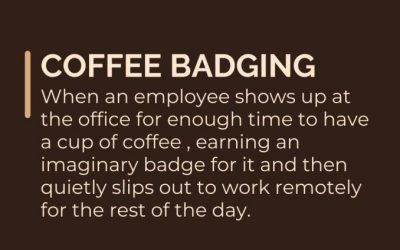July 2015
As the summer kicks in, so does the peak time for employees taking annual leave and this can put additional strain on any business. Not only this, but the law on calculating holiday pay also refuses to stand still! In this Employment Law Update we looks at calculating holiday pay, reporting your own misconduct, religious dress at work, collective consultation and more…
In dealing with voluntary rather than compulsory overtime the case goes beyond the ruling in Bear Scotland v Fulton but it is hardly a surprise. The European Court of Justice has made it clear time and again that holiday pay should reflect what an employee normally receives. If an employee normally works overtime then his or her holiday pay should reflect that fact.
Of course, it is not clear just what ‘normally’ means and the Northern Ireland Court of Appeal does not give any clear guidance as to when an employee’s overtime is sufficiently regular to be seen as a normal part of his or her pay. That is an issue to be saved for future cases.
The situation is not helped by the fact that the Working Time Regulations – which set out the right to paid annual leave – have now been so completely overtaken by case law that their provisions on holiday pay are practically useless. It is about time the Government updated them and gave employers something concrete to work with. In the meantime the safest course is to base holiday pay on an average of the employee’s earnings over a 3 month reference period – and take advice if that seems unduly burdensome or unfair.
Reporting your own misconduct
Many employees work for more than one employer – although employers are generally entitled to insist that employees either get their permission – or at least inform them – before taking on a secondary role elsewhere. One issue that can then arise is the extent to which one employer is entitled to know about any misconduct issues that have arisen while the employee was working for another employer.
In Basildon Academies v Amadi a supervisor took on another role at a college without telling his employer. More seriously he also failed to tell them when he was accused of sexually assaulting a student. No criminal action was taken against him – although he was arrested and bailed. He did not inform his main employer of the incident – but they found out when the police made enquiries about his employment with them. He was dismissed for what his employer said was gross misconduct in taking another job without permission and also failing to inform them of a serious allegation of misconduct that had been made against him.
The Employment Tribunal found the dismissal unfair, and that finding was upheld on appeal. The EAT held that, in the absence of a specific requirement set out in the contract, there was no obligation on an employee to report allegations of misconduct – particularly where the employee regarded the allegations as malicious or false.
This is obviously a serious issue for employers – like Basildon Academies – that have safeguarding obligations in relation to children or vulnerable adults. One obvious answer is to make sure that there is an express requirement in a contract of employment that the employee provides full disclosure of any allegations that may be relevant to his or her main employment. However even without that requirement an employer, once it has been informed of an allegation, would be entitled to investigate it to see whether it was sufficiently serious to justify a dismissal on the basis that the employee presents a safeguarding risk. This is a difficult and delicate area and it is important that employers do not take action without taking legal advice first.
Religious dress at work
Employers are entitled to impose reasonable dress codes on employees – although in doing so they should take account of any religious requirements that a particular employee must observe. Where there is a clash between the needs of the business and the religious needs of the employee then the question is whether the employer can show that complying with its rules is a ‘proportionate means of achieving a legitimate aim’.
In Begum v Pedagogy Auras UK Ltd t/a Barley Lane Montessori Day Nursery Ms Begum was applying for post in a nursery and in the course of the interview the employer commented on her jilbab – a long flowing garment worn by some Muslim women. The employer thought that the particular jilbab she was wearing was slightly longer than ankle length and told her that it would not be suitable to wear at work as it would be a tripping hazard. Although the interview ended amicably – with Ms Begum saying that she would consult her family about wearing a shorter jilbab – she subsequently claimed indirect discrimination based on her religious beliefs.
Her claim was rejected. The employer had been entitled to be concerned about the potential trip hazard and had not told her that she would not be allowed to wear a jilbab at work. It was just that the jilbab she had worn at interview appeared to be even longer than usual. The employer had been open to further discussions about what kind of jilbab could be worn and would have been happy to accommodate the employee’s needs if it could be shown that wearing the jilbab at work would be safe.
Collective Consultation
An employer that is proposing to make 20 or more redundancies at a single establishment must consult with employee representatives about ways of avoiding the dismissals. Failure to do so can result in a tribunal making a ‘protective award’ of as much as 90 days’ pay to each of the dismissed employees.
In E Ivor Hughes Educational Foundation v Morris and others the EAT held that a school was proposing to make redundancies when the Board of Governors decided that it would have to close the school unless numbers improved significantly over the coming term. The fact that it was still possible that the school would be saved did not alter the fact that redundancies would be inevitable unless there was a significant change in circumstances and the employer should have begun consultations at that point.
The law on redundancy consultation does allow for special circumstances where it is not possible for consultations to take place and the school sought to argue that the special circumstances in this case were that if news of a possible closure was to leak, then numbers would fall off even more and the school would be doomed. The EAT held that there was nothing particularly special about that situation, which would be faced by many employers contemplating a closure.
As it happened the school did close as numbers continued to decline. Even if consultation had taken place, it would have done nothing to delay or alter the final decision. However, this did not affect the amount of compensation payable. Compensation in this situation is based on the employer’s failure, not the employee’s loss and so the full 90 days’ pay was awarded to each of the 24 employees made redundant.
Transfer of Undertakings
The Transfer of Undertakings Regulations – TUPE – cause regular difficulties for employers. One important thing to remember is that it is that the employer cannot simply pick and choose which employees are transferred. The process is an automatic one and all employees who are ‘assigned’ the contract or undertaking at the time of the transfer will transfer – whatever the wishes of the employer may be.
In Jakowlew v Saga Care an employee worked on a care contract that Saga Care held with Enfield Council. After a falling out with her line manager she was suspended and Enfield eventually instructed Saga to remove her from the contract – which they were entitled to do under the terms of their agreement.
However Saga took no action and the employee was still suspended when the contract was transferred to Westminster Homecare Ltd. When Saga eventually made her redundant an issue arose as to who was liable for her dismissal – Saga or Westminster?
There was no doubt that TUPE applied – the question was whether the employee was assigned to the contract at the time of the transfer. The EAT held that she was. The Council had instructed Saga to remove her, but no action was actually taken. It was not argued that the fact she was suspended in itself prevented her from being transferred. The fact that the Council did not want her to be assigned to the contract did not alter the fact that – at the time of the transfer – she was. It followed that Westminster Homecare would be liable for her dismissal.
And more from TUPE…
It is clear that TUPE applies when a client changes its service provider – but what if one of the contractors then subcontracts work to another firm – does TUPE apply then too?
In Jinks v London Borough of Havering the Council contracted with a firm called Saturn to operate an ice rink and car park. Saturn sub-contracted the car park to another firm – Regal. The ice rink eventually closed and although the car park continued to be operated for a while the Council eventually took it back in house before closing the whole site, which was subsequently passed on to an NHS Trust.
The Council did not have any contract with Regal – but could an employee of Regal’s be transferred to the Council when it took over the site? The Employment Tribunal initially said no as a TUPE transfer requires the contractor to be working on behalf of the client – the Council in this case – and the Council was not Regal’s client. However the EAT held that that was not necessarily so. A contractor in a TUPE situation may have more than one client and it could be argued that while Regal’s main client was Saturn, it was operating the car park on behalf of the Council and in that sense the Council was Regal’s client too. The issue was sent back to the Tribunal to decide the issue.
Working time and travel to work
When is a worker working? The Working Time Regulations impose limits on working time and also require employers to provide a 20 minute rest break during a working day of six hours or more, an 11 hour rest period between working days and a 24 hour rest period in every 7 days. To meet these requirements an employer needs to be clear about what counts as working time and what doesn’t. It’s also important because the employer needs to be sure that it is paying the national minimum wage throughout any period of working time.
Ultimately the question is governed by the Working Time Directive, which means that cases that come before the European Court of Justice have a direct impact on the UK. A Spanish case currently making its way through the system – Federación de Servicios Privados del sindicato Comisiones Obreras – will be important for determining whether time spent travelling to and from work counts as working time.
It is generally accepted that the normal commute to a regular place of work does not count as working time. After all, an employer does not control whether the employee lives a five minute walk away from work or on the other side of the county. Equally, it is clear that travel time during the working day should be treated as working time. An employee who needs to visit a number of clients over the course of the day is almost certainly working when travelling between appointments. This case, however is concerned with employees who do not work from a fixed location, but visit a number of sites within a geographic area. The employer treats journeys within the working day as working time but does not count the journey to and from home – seeing that as equivalent to a daily commute.
The case has not been decided yet, but part of the process in the European Court is to publish an opinion from the Advocate General which is usually highly influential on the eventual outcome. The Advocate General in this case has now said that the initial and final journeys of the day should count as working time. As home-based employees, travelling from home to the first client, and travelling from the last client back to their home is an integral part of their daily duties and should count towards their total hours worked in any week. The Court does not always follow the Advocate General’s opinion, but if it does then employers with mobile employees may have to rethink how they measure working time.
And Finally…
You might have thought that if one of your employees was given an 18 month prison sentence for GBH and resisting arrest then a fair dismissal would just be a formality. Yet spare a thought for the Fermain Valley Hotel in Guernsey which has just been ordered to pay out over £11,000 to their former head chef whose drunken rampage landed him behind bars. The case is reported in the Daily Telegraph and the employer is more than a little annoyed at the ruling. It seems that the Hotel assumed that the prison sentence justified dismissal and did not carry out any investigation of its own or attempt to interview the employee.
It is important to realise that Guernsey is not part of the UK and has its own employment law. If the case had come up before a UK Tribunal, even if there was a procedurally unfair dismissal, compensation would almost certainly have been reduced to zero to reflect the fact that dismissal was inevitable. However in Guernsey compensation for unfair dismissal is a fixed penalty of six months’ pay and the circumstances in which that is permitted are limited. As it happens the Tribunal did reduce his compensation by 25% to reflect his misconduct. Since that involved biting a police officer’s finger while resisting arrest, one has to wonder what an employee has to do in Guernsey to get a 100% deduction.











